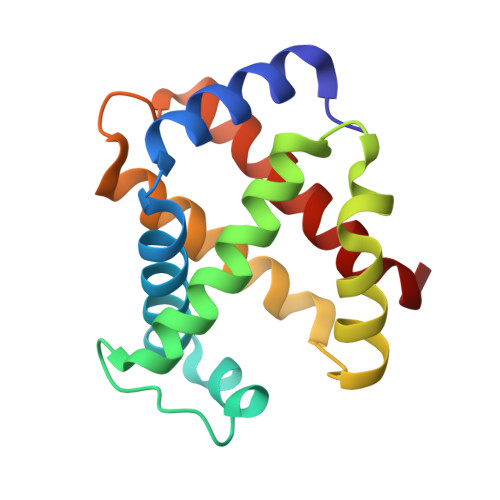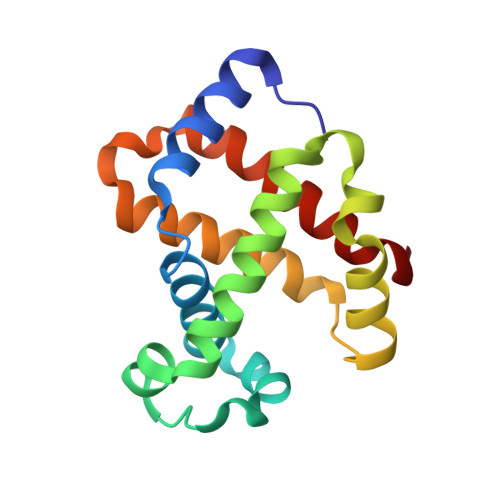Biodistribution PET/CT Study of Hemoglobin-DFO-89Zr Complex in Healthy and Lung Tumor-Bearing Mice.
Kiraga, L., Cerutti, G., Braniewska, A., Strzemecki, D., Sas, Z., Boffi, A., Savino, C., Montemiglio, L.C., Turnham, D., Seaton, G., Bonamore, A., Clarkson, R., Dabkowski, A.M., Paisey, S.J., Taciak, B., Kucharzewska, P., Rygiel, T.P., Krol, M.(2020) Int J Mol Sci 21
- PubMed: 32679799
- DOI: https://doi.org/10.3390/ijms21144991
- Primary Citation of Related Structures:
6HK2 - PubMed Abstract:
Proteins, as a major component of organisms, are considered the preferred biomaterials for drug delivery vehicles. Hemoglobin (Hb) has been recently rediscovered as a potential drug carrier, but its use for biomedical applications still lacks extensive investigation. To further explore the possibility of utilizing Hb as a potential tumor targeting drug carrier, we examined and compared the biodistribution of Hb in healthy and lung tumor-bearing mice, using for the first time 89 Zr labelled Hb in a positron emission tomography (PET) measurement. Hb displays a very high conjugation yield in its fast and selective reaction with the maleimide-deferoxamine (DFO) bifunctional chelator. The high-resolution X-ray structure of the Hb-DFO complex demonstrated that cysteine β93 is the sole attachment moiety to the αβ-protomer of Hb. The Hb-DFO complex shows quantitative uptake of 89 Zr in solution as determined by radiochromatography. Injection of 0.03 mg of Hb-DFO- 89 Zr complex in healthy mice indicates very high radioactivity in liver, followed by spleen and lungs, whereas a threefold increased dosage results in intensification of PET signal in kidneys and decreased signal in liver and spleen. No difference in biodistribution pattern is observed between naïve and tumor-bearing mice. Interestingly, the liver Hb uptake did not decrease upon clodronate-mediated macrophage depletion, indicating that other immune cells contribute to Hb clearance. This finding is of particular interest for rapidly developing clinical immunology and projects aiming to target, label or specifically deliver agents to immune cells.
Organizational Affiliation:
Department of Cancer Biology, Institute of Biology, Warsaw University of Life Sciences, 02-787 Warsaw, Poland.



















